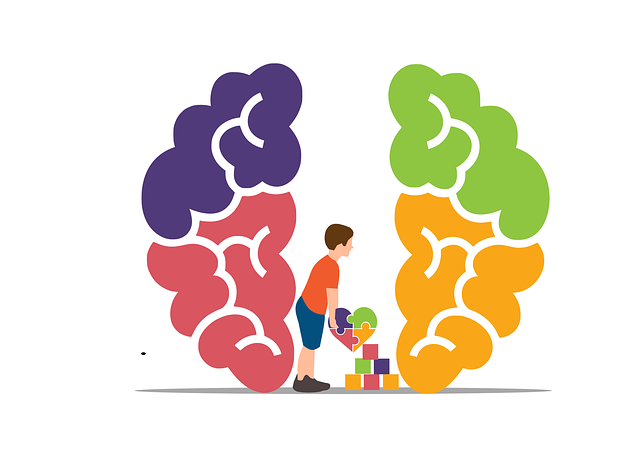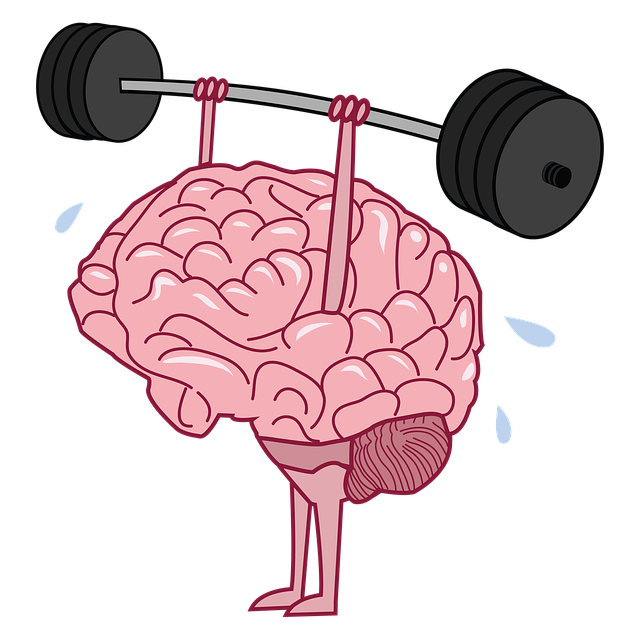Emotion regulation is a key strategy for maintaining mental health, especially in managing conditions like Lakewood Depression Therapy. Techniques such as mindfulness, cognitive reframing, social skills training, and risk management planning empower individuals to handle emotional triggers effectively. By adopting healthy lifestyle practices, engaging in therapy, and addressing past traumas, people can improve their emotional intelligence and overall well-being, reducing the impact of stress and mental health issues like Lakewood Depression Therapy.
Emotion regulation techniques are essential tools for navigating life’s challenges. This comprehensive guide explores the concept, significance, and practical application of emotion regulation, offering valuable insights for enhancing emotional intelligence. We delve into common techniques, providing a detailed overview, and offer practical tips for integrating these strategies into daily life. Additionally, we highlight the role of Lakewood Depression Therapy in teaching and nurturing emotional resilience, emphasizing its importance in overall well-being.
- Understanding Emotion Regulation: Unraveling the Concept and Its Significance
- Common Techniques for Effective Emotion Regulation: A Comprehensive Overview
- Implementing Emotion Regulation Strategies in Everyday Life: Practical Tips and Exercises
- The Role of Lakewood Depression Therapy in Teaching and Nurturing Emotional Intelligence
Understanding Emotion Regulation: Unraveling the Concept and Its Significance

Emotion regulation is a crucial skill that involves understanding and managing one’s emotional responses in various situations. It is a complex process that plays a pivotal role in maintaining good mental health, particularly in mitigating issues like Lakewood Depression Therapy. By learning to recognize and control emotions, individuals can enhance their overall well-being and quality of life.
This concept is especially significant in today’s fast-paced world, where stress and emotional challenges are prevalent. Mental Health Awareness advocates for the importance of emotional regulation as a preventive measure against various mental health disorders. For professionals in the field, such as therapists and counselors, mastering this technique is essential. Risk Management Planning for Mental Health Professionals often includes strategies to teach clients effective emotion regulation skills, fostering healthier coping mechanisms and improving their ability to navigate life’s challenges.
Common Techniques for Effective Emotion Regulation: A Comprehensive Overview

Emotion regulation is a crucial skill to master, and various techniques can help individuals navigate their feelings effectively. Among the most common methods are mindfulness practices, which encourage staying present and observing emotions without judgment. This simple yet powerful tool enables folks to detach from intense reactions, fostering better control. For instance, Lakewood Depression Therapy incorporates mindfulness into its treatment plans, helping clients manage depressive symptoms by acknowledging and accepting their emotions.
Another effective strategy is cognitive reframing, a process that involves identifying and challenging negative thought patterns. By changing the way one interprets events, individuals can shift emotional responses. Social Skills Training plays a significant role here, as it equips people with the ability to communicate their needs assertively and seek support, thereby reducing the intensity of emotional reactions. Additionally, Risk Management Planning for Mental Health Professionals is essential in teaching clients strategies to anticipate and cope with potential triggers, ensuring better emotional regulation in various settings.
Implementing Emotion Regulation Strategies in Everyday Life: Practical Tips and Exercises

Implementing emotion regulation strategies in everyday life is a crucial step towards enhancing mental wellness and combating issues like Lakewood Depression Therapy. These techniques empower individuals to navigate their emotions more effectively, fostering better emotional intelligence and resilience. Start by identifying your triggers; recognize when you’re feeling overwhelmed or stressed and take a step back. This awareness is the first layer of defense in managing emotions.
Practical tips include incorporating mindfulness exercises like deep breathing or meditation into your routine. These practices help calm the mind and body, allowing for better perspective and control over reactions. Additionally, regular physical activity releases endorphins, boosting mood and self-esteem improvement. Incorporating a healthy diet and adequate sleep further strengthens these strategies, as proper rest and nutrition are integral to mental wellness coaching programs development. For those with past traumas, trauma support services can offer specialized tools tailored to their needs, helping them integrate these strategies into their lives effectively.
The Role of Lakewood Depression Therapy in Teaching and Nurturing Emotional Intelligence

Lakewood Depression Therapy plays a pivotal role in teaching individuals how to navigate and manage their emotions effectively. This therapeutic approach focuses on empowering people to understand and regulate their emotional responses, fostering a deeper sense of self-awareness and emotional intelligence. Through specialized techniques, it aims to promote mental wellness and emotional well-being by providing practical tools for managing challenging feelings.
By addressing the root causes of depression and other mental health concerns, Lakewood Depression Therapy contributes to stigma reduction efforts. It teaches individuals to challenge negative thought patterns and replace them with healthier coping mechanisms. These evidence-based practices enable people to build resilience, improve their emotional regulation skills, and ultimately lead more fulfilling lives. This approach is particularly valuable in today’s fast-paced world where stress and mental health challenges are prevalent, offering a proactive step towards nurturing both emotional intelligence and overall mental wellness.
Emotion regulation is a vital skill that enhances overall well-being, and understanding its mechanisms empowers individuals to lead more fulfilling lives. This article has explored various aspects of emotion regulation, from defining the concept to providing practical techniques for everyday application. The integration of Lakewood Depression Therapy offers a unique approach, combining comprehensive strategies with nurturing emotional intelligence. By adopting these methods, one can navigate life’s challenges with greater resilience and adaptivity, ultimately fostering better mental health outcomes.














